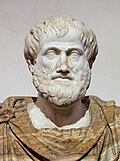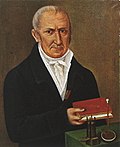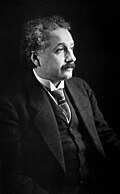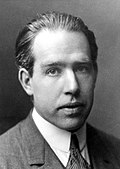Scientist
A scientist is a person who studies or has mastered the field in science. A scientist tries to understand how our world, or other things, work. Scientists make observations, ask questions and do extensive research work in finding the answers to many questions.
Scientists may work in laboratories for governments, companies, schools and research institutions. Some scientists teach at universities and other places and train people to become scientists. Scientists often do experiments to find out more about reality, and sometimes may repeat experiments or use control groups. Scientists who are doing applied science try to use scientific knowledge to improve the world.
Scientists use the Scientific method to test theories and hypotheses.
Types of scientists
Scientists can work in different areas of science. Here are some examples:
- Scientists that study physics are physicists.
- Scientists that study chemistry are chemists.
- Scientists that study biology are biologists.
- Scientists that study rocks are geologists.
- Scientists that study plants are botanists.
- Scientists that study minds are psychologists.
- Scientists that study farming are agricultural scientists.
Scientist Media
"No one in the history of civilization has shaped our understanding of science and natural philosophy more than the great Greek philosopher and scientist Aristotle (384–322 BC), who exerted a profound and pervasive influence for more than two thousand years" —Gary B. Ferngren
Georgius Agricola gave chemistry its modern name. Generally referred to as the father of mineralogy and the founder of geology as a scientific discipline.
Johannes Kepler, one of the founders and fathers of modern astronomy, the scientific method, natural and modern science.
Alessandro Volta, the inventor of the electrical battery and discoverer of methane, is widely regarded as one of the greatest scientists in history.
Francesco Redi, referred to as the "father of modern parasitology", is the founder of experimental biology.
Isaac Newton, who is regarded as "the towering figure of the Scientific Revolution", and who achieved the first great unification in physics, created classical mechanics, calculus and refined the scientific method.
Mary Somerville, for whom the word "scientist" was coined.
Physicist Albert Einstein developed the general theory of relativity and made many substantial contributions to physics.
Physicist Enrico Fermi is credited with the creation of the world's first atomic bomb and nuclear reactor.
Atomic physicist Niels Bohr made fundamental contributions to understanding atomic structure and quantum theory.
Related pages
| Wikimedia Commons has media related to Lua error in Module:Commons_link at line 62: attempt to index field 'wikibase' (a nil value).. |
- History of science
- List of scientists from Africa
- List of scientists from Asia
- List of scientists from Europe
- List of scientists from North America
- List of scientists from Oceania
- List of scientists from South America










